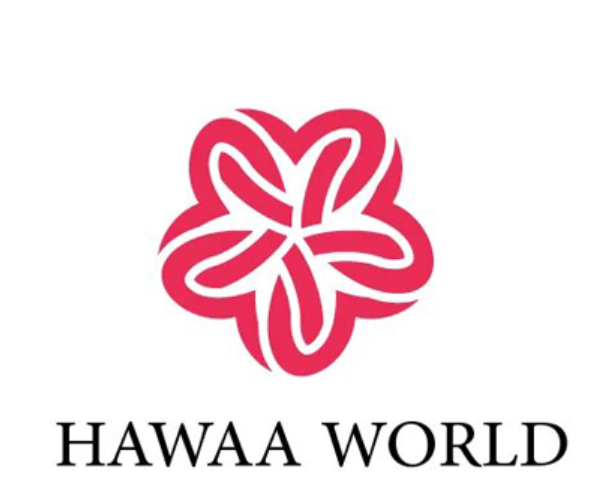
From Print to Digital Dominance: The Legacy of Spiegel Online
In the vast and complex landscape of global journalism, few publications command the respect and influence of Germany’s Der Spiegel. For decades, its weekly print magazine has been a pillar of German political and cultural life, known for its deep-seated investigative journalism and critical, often provocative, tone. However, the story of its modern dominance cannot be told without a deep dive into its digital counterpart, Spiegel Online. Launched in an era when the internet was still in its infancy, Spiegel Online not only pioneered digital journalism in Germany but also set a new standard for online news. This article will explore the pivotal role of Spiegel Online in the German media landscape, its core journalistic ethos, key moments of controversy and triumph, and its ongoing evolution in a rapidly changing digital world.
1. The Birth of a Digital Pioneer
Spiegel Online was born in October 1994, a moment in history that seems almost quaint today. At a time when dial-up modems were the norm and most newspapers were still debating the viability of an online presence, Der Spiegel’s decision to launch a standalone digital publication was nothing short of revolutionary. Its mission was clear: to be a fast, continuously updated news source that was independent of the print magazine’s weekly cycle. This allowed it to break news as it happened, a stark contrast to the in-depth, reflective nature of the weekly edition. The publication quickly established itself as a go-to source for breaking news, political analysis, and a new, more dynamic form of journalism that was perfectly suited for the internet. It was a bold move that positioned Der Spiegel at the forefront of Germany’s digital media transformation.
2. The Core Journalistic Ethos
The success of Spiegel Online was not just about speed; it was about upholding the same high journalistic standards that had defined the print magazine. The digital publication became a powerhouse of investigative journalism, famous for holding politicians and corporations to account. Its journalists were known for their meticulous fact-checking, rigorous research, and a commitment to in-depth analysis. This dedication to quality journalism earned it a reputation for credibility and authority, making it a “media of record” for German-speaking audiences. The tone was often critical, and it never shied away from controversy, a characteristic that made it both revered and feared in the political establishment. By translating the core values of Der Spiegel to a new medium, Spiegel Online was able to build a massive digital audience that trusted its reporting in an increasingly noisy and fragmented media landscape.
3. Key Controversies and Impact
Like any major news organization, Spiegel Online has had its share of triumphs and controversies. One of the most significant events in its history was the Relotius scandal in late 2018. Claas Relotius, a celebrated journalist and star reporter, was found to have extensively fabricated his stories for years. The scandal sent shockwaves through the German and international media world, raising serious questions about journalistic integrity and internal controls. However, Der Spiegel’s response was a masterclass in crisis management and transparency. The publication publicly revealed the scandal, conducted a thorough internal investigation, and published a detailed report on its findings. It implemented new, more rigorous fact-checking procedures and took full responsibility for its failures. This proactive and transparent approach, while damaging in the short term, ultimately strengthened the publication’s reputation for self-correction and its commitment to the truth. Beyond this controversy, Spiegel Online has been responsible for breaking numerous major exclusive stories that have shaped public discourse and had a lasting impact on German politics.
4. The Evolution of Content and Media
Over the years, Spiegel Online evolved far beyond a simple news website. The publication recognized the need to embrace multimedia and has seamlessly integrated videos, podcasts, and interactive features into its reporting. The most significant strategic shift came in 2020 when the separate brand of “Spiegel Online” was formally retired, and all digital content was unified under the primary brand of Der Spiegel. This move streamlined the editorial process and presented a consistent brand identity to both print and digital readers. Today, the digital publication is a hub for a variety of content formats, including data journalism, long-form narratives, and a popular suite of podcasts that cover everything from politics and current events to science and culture. This continuous adaptation has ensured its relevance in a rapidly changing media environment.
5. The Challenge of Monetization: Paywalls and Digital Subscriptions
The transition to digital has presented a major challenge for all news outlets: how to fund high-quality journalism when online content is expected to be free. For years, Spiegel Online relied on an ad-supported model, but as ad revenue declined and the costs of investigative journalism remained high, the company made a strategic shift. It introduced a paywall and a premium subscription service called “Spiegel +”. This service offers subscribers exclusive content, in-depth analysis, and an ad-free reading experience. The decision was not without risk, but it was a necessary step to secure the financial future of the publication and ensure it could continue to produce the kind of journalism for which it is renowned. The success of its paywall has been a testament to the value that its audience places on credible and well-researched news.
In the age of social media, where news is often consumed in snippets and headlines, Der Spiegel has found a way to maintain its voice and influence. The publication has a strong presence on platforms like Twitter (X), Facebook, and Instagram, where it distributes content, engages with readers, and drives traffic back to its website. It uses these platforms not just for news dissemination but also to promote its in-depth reporting and contextualize complex issues. In a world increasingly plagued by misinformation and fake news, Der Spiegel’s social media presence serves as a crucial counter-narrative, offering a source of credible and verified information that stands out from the noise.
7. A Comparison to Global Media Leaders
When compared to global media giants like The New York Times or The Guardian, Der Spiegel holds a unique position. While its reach is primarily within the German-speaking world, its journalistic standards are on par with the best in the industry. It shares a similar dedication to investigative reporting and holding power accountable. However, its distinct tone—often more biting and provocative than its English-language counterparts—gives it a unique character. Its focus on German and European politics provides a crucial perspective on a region that is central to global affairs, making it an essential read for anyone interested in European politics and society.
Conclusion
The story of Spiegel Online, now seamlessly integrated into the wider brand of Der Spiegel, is a microcosm of the digital transformation of modern media. It represents a successful transition from a print-first publication to a digital-first powerhouse, all while upholding the core journalistic principles that have defined it for decades. Its journey from a pioneering website to a multimedia news organization, its embrace of paywalls, and its transparent handling of controversy all serve as a powerful case study for a news industry in flux. As Der Spiegel continues to evolve, it remains a vital voice of independent journalism, a beacon of credible reporting, and an indispensable part of Germany’s media landscape.






